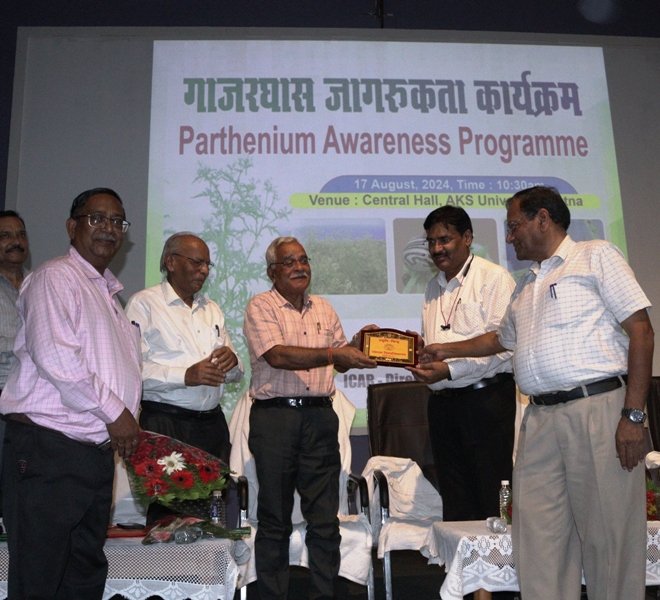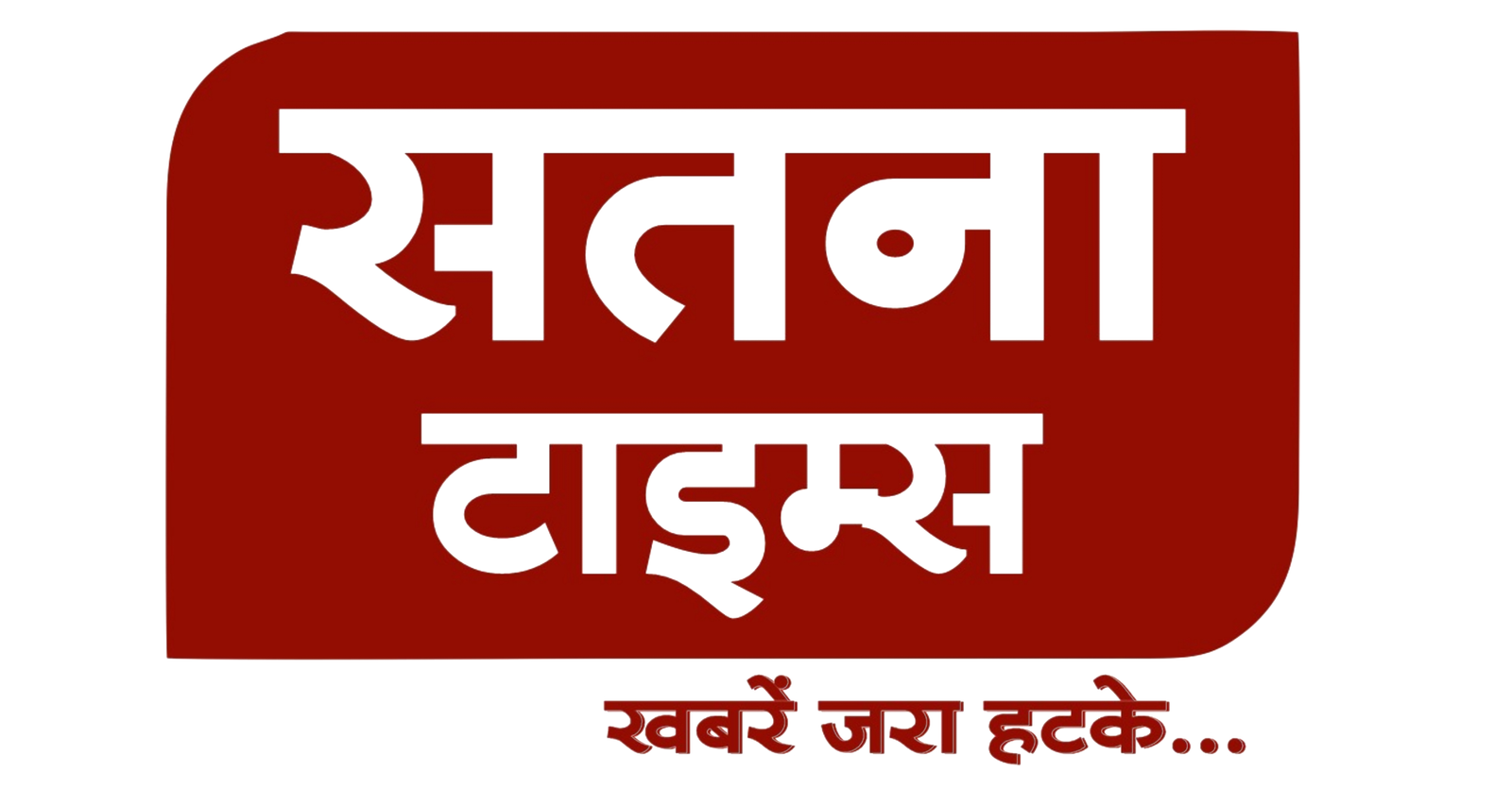In a significant initiative aimed at addressing the growing concern over the spread of Parthenium, an awareness program was conducted in the Central Hall of AKS University, bringing together experts, scientists, students, and farmers to discuss the environmental, social, and health impacts of this invasive weed. The event was graced by the presence of Dr. J. P. Mishra, Director of ICAR-Directorate of Weed Research (ICAR-DWR), Jabalpur, and Dr. P. K. Singh, Principal Scientist at ICAR-DWR, Jabalpur, who served as the chief guests.

The program highlighted the urgent need to control the spread of Parthenium, also known as Gajarghas or Congress Grass, which has become a major threat to agriculture, biodiversity, and public health in India. This invasive species, originally from the Americas, has spread rapidly across the country, infesting agricultural fields, grazing lands, and even urban areas, leading to severe ecological and economic consequences.
Dr. P. K. Singh delivered an insightful presentation on the various techniques available for managing and eradicating Parthenium. He emphasized that while manual removal and herbicide application are commonly used methods, there are also innovative ways to re-purpose the weed, turning a challenge into an opportunity. Dr. Singh discussed the potential of converting Parthenium into compost, briquettes for fuel, and even biogas, thus providing a sustainable solution that not only helps in eradicating the weed but also contributes to energy and nutrient recovery.
Dr. J. P. Mishra, in his address, focused on the ongoing research efforts at ICAR-DWR aimed at finding effective strategies to combat Parthenium. He elaborated on the need for continued research and innovation to develop more efficient and sustainable methods of control. Dr. Mishra also called for greater collaboration between the university and ICAR-DWR to enhance research initiatives and ensure that the latest findings and technologies are effectively disseminated to farmers and the broader community.
The program also featured a demonstration by officers from ICAR-DWR, who exhibited a biocontrol beetle that naturally feeds on Parthenium, helping to curb its spread in an eco-friendly manner. This biological control method is gaining attention as a viable alternative to chemical herbicides, offering a sustainable way to manage Parthenium without harming the environment.
Special guest Dr. V. K Singh, HR Head, MP- CEDMAP highlighted that how entrepreneurship can be formulated among farmers and various and role of various agencies in this regard.
The Pro-Chancellor of the University, Er. Anant Kumar Soni, who chaired the occasion, stressed the importance of raising awareness about the dangers of Parthenium.
He noted that this weed not only reduces crop yields and degrades soil quality but also poses serious health risks, including allergies, dermatitis, and respiratory issues. The social impact is also significant, as communities, especially in rural areas, struggle with the economic burden caused by reduced agricultural productivity and increased healthcare costs.
The event saw active participation from various stakeholders, including faculty members, students of B.Sc. (Hons.) Agriculture, and several farmers who were keen to learn about the latest control measures. The information shared during the program was well-received, with many farmers expressing their intention to implement the recommended practices to manage Parthenium on their lands.
The presence of Dr. R.S. Tripathi, Dr. Harshwardhan Shirvatava, Dr. S.S. Tomar, and Dr. A.K. Bhowmik and scientists and technical staff of ICAR-DWR further added sheen to the occasion.The University and ICAR-DWR’s collaborative efforts in this regard are expected to contribute significantly to the fight against this invasive species, ensuring a healthier environment and a more productive agricultural sector.

